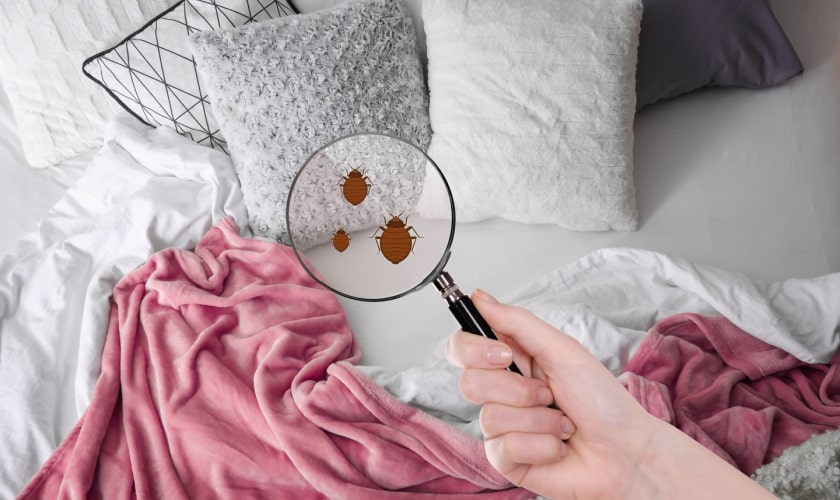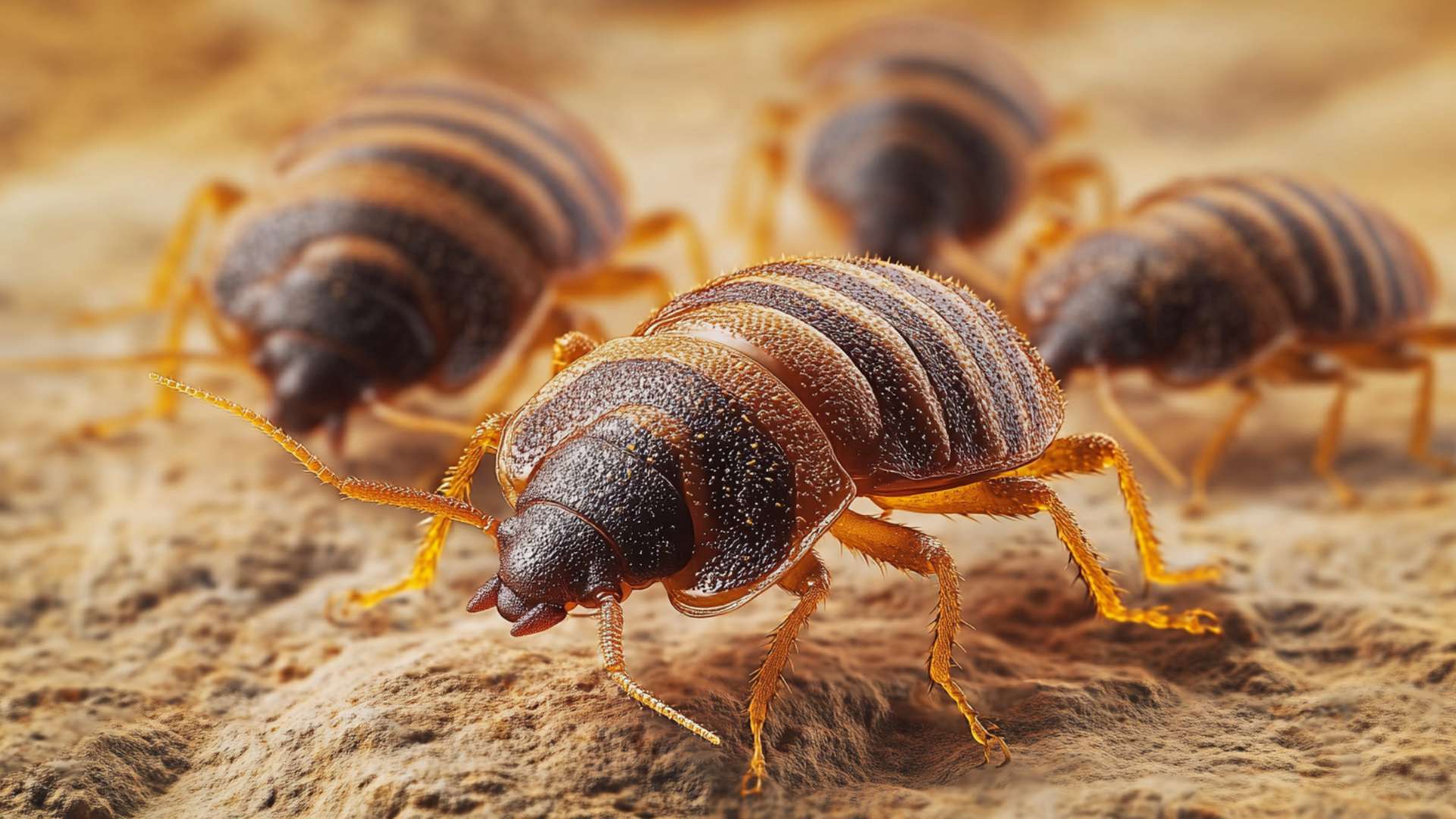A Failure of the Various Kinds Of Pest Control Solutions
In the realm of bug control, a plethora of methods exist to fight the existence and attend to of undesirable creatures. From the conventional use of chemical pesticides to extra innovative organic control solutions, each strategy uses unique advantages and constraints. As we browse with the varied landscape of insect control services, comprehending the complexities of each method comes to be paramount in determining one of the most effective training course of activity. Remain tuned as we explore the nuanced globe of bug control approaches and discover exactly how each type plays an one-of-a-kind function in safeguarding our atmospheres.
Chemical Pesticides
Chemical pesticides are generally utilized in pest control to properly get rid of a wide variety of insects and other parasites. These pesticides function by targeting the nerves of the bugs, disrupting their typical features, and eventually causing their demise. Using chemical pesticides has been a staple in the insect control sector for decades as a result of their effectiveness and quick results.

Nonetheless, it is important to make use of chemical pesticides with care as a result of their possible unsafe impacts on the atmosphere and non-target species. Incorrect application or overuse of these chemicals can lead to pollution, injury to helpful bugs, and resistance advancement in parasite populations. Consequently, it is essential to follow safety and security guidelines and laws when using chemical pesticides for parasite control.
Biological Control Approaches
Considering the potential ecological influences and dangers related to chemical pesticides, biological control approaches supply an even more lasting technique to managing pest populaces. Biological control entails the usage of natural enemies, such as virus, predators, and parasites, to subdue bug populaces. This approach is typically a lot more targeted, impacting just the certain pest varieties while reducing injury to advantageous insects, humans, and the environment.

Once developed, all-natural enemies can help manage pest populations continuously without the requirement for duplicated applications of chemicals. In addition, organic control is commonly extra affordable and can assist minimize chemical resistance in pest populations over time.

Mechanical Insect Control
Mechanical insect control involves the physical control or elimination of parasites to handle their populaces properly. This technique is typically utilized along with other bug control approaches for extensive pest management. One common example of mechanical parasite control is utilizing traps to record rats or insects. These catches can be established up in calculated areas where pests Kings Bed bug exterminator Cincinnati are known to dwell, assisting to minimize their numbers.
One more mechanical approach is making use of obstacles such as screens, fencings, or internet to obstruct parasites from getting in specific areas. By physically protecting against parasites from accessing a location, the likelihood of problems or damage can be substantially decreased. In addition, hands-on methods like handpicking parasites off plants or frameworks can be effective for smaller-scale invasions.
While mechanical pest control approaches can be labor-intensive, they offer a non-chemical choice that can be lasting and environmentally pleasant. By targeting parasites directly, mechanical control methods can help keep pest populaces in check without depending on chemicals.
All-natural Treatments
Making use of all-natural solutions for pest control provides a lasting and environmentally friendly technique to taking care of parasite populaces without turning to chemical interventions. All-natural remedies entail using compounds originated from plants, minerals, or other naturally taking place resources to prevent or eliminate bugs. As an example, planting specific natural herbs like basil, mint, or lavender around your residential or commercial property can repel insects as a result of their strong fragrances. Diatomaceous planet, a powder made from fossilized algae, can be used to combat parasites like ants, roaches, and bed pests by dehydrating their exoskeletons.
Furthermore, crucial oils such as tea tree oil or neem oil have insecticidal residential or commercial properties that can properly regulate bugs while being secure for the setting. An additional all-natural treatment is introducing beneficial insects like ladybugs or hoping mantises to your yard to take advantage of damaging pests. By incorporating these all-natural remedies into parasite administration techniques, people can decrease their dependence on synthetic chemicals and promote a healthier, a lot more well balanced ecological community.
Integrated Pest Monitoring
Integrated Pest Monitoring (IPM) is an extensive technique that combines different methods to effectively manage pest populaces while reducing dangers to human health and the atmosphere. IPM entails the assimilation of numerous pest control approaches such as organic control, environment control, adjustment of social techniques, and using immune plant varieties. By making use of a mix of these strategies, IPM intends to minimize reliance on chemical pesticides, which can have adverse influence on ecosystems and human health and wellness.
One trick facet of IPM is the focus on prevention. By carrying out measures to avoid parasite infestations before they take place, such as keeping correct hygiene and securing entrance factors, the demand for reactive bug control measures is minimized. Tracking and regular assessments play a crucial duty in IPM, permitting very early detection of bug issues and timely treatment.
Verdict
In final thought, the different types of pest control solutions supply a variety of options for efficiently taking care of insect problems. Biological control techniques utilize all-natural predators to regulate insects. Integrated Pest Monitoring combines numerous techniques for an all natural method to pest control.
Chemical pesticides are commonly utilized in insect control to successfully eliminate a large range of bugs and other parasites.Mechanical pest control includes the physical manipulation or elimination of pests to manage their populaces efficiently (Kings pest control Cincinnati).Using all-natural solutions for parasite control offers a green and sustainable approach to managing pest populations without resorting to chemical interventions.Integrated Insect Administration (IPM) is a detailed strategy that combines numerous methods to successfully manage pest populations while reducing threats to human wellness and the atmosphere.In conclusion, the numerous kinds of parasite control options provide an array of alternatives for successfully managing insect infestations